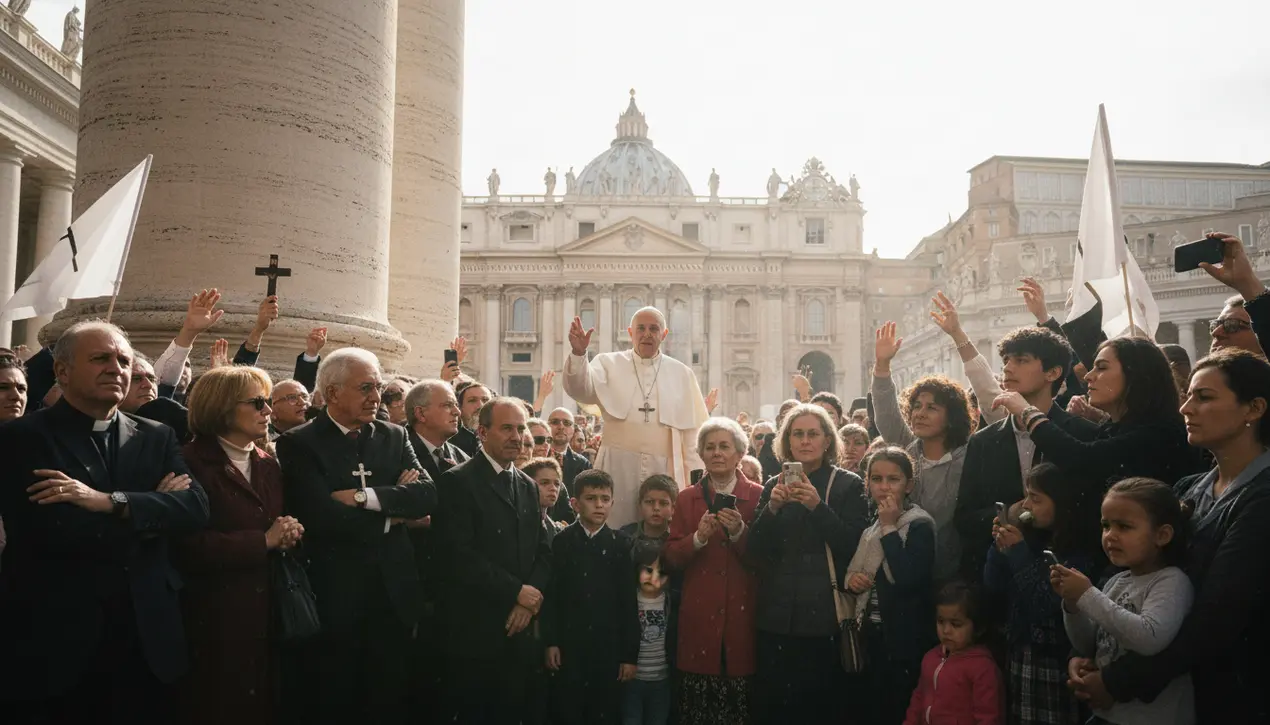
Politicshuman rightsRefugees and Migration
The American Pope: Why Leo XIV's U.S. Roots Make His Message Unavoidable
RO
Robert Hayes
14 hours ago7 min read7 comments
The election of Pope Leo XIV, the first American pontiff in Catholic history, has created an unprecedented and complex shift in global religious and political dynamics. Originating from Chicago, his native fluency in Midwestern English has fundamentally transformed the Vatican's communication with the United States, removing the interpretive layers that often softened the messages of his non-English-speaking predecessors.This linguistic directness has amplified his critiques on issues ranging from the Trump administration's immigration policies to the ethical challenges of artificial intelligence, giving his voice a new and resonant clarity in American public discourse. Unlike Pope Francis, who some American conservatives could dismiss as a distant figure misjudging their culture, Leo XIV presents an unassailable familiarity; he is one of their own, making his challenges to their political alignments far more difficult to ignore.This has provoked a unique crisis for a segment of conservative, particularly traditionalist, American Catholics who anticipated a post-Francis return to rigid doctrine. Instead, they face a pope who embodies continuity with Francis's focus on social justice, especially the sacred dignity of the human person—a principle that places him in direct opposition to policies of mass deportation and the vilification of migrants.The resulting tension is not merely political but deeply theological, anchored in a century of consistent Catholic social teaching from Pius XII through John Paul II that has championed the rights of refugees. When Pope Leo questions whether one can be 'pro-life' while supporting the 'inhuman treatment of immigrants,' he is not inventing new doctrine but applying ancient principles with a new, unmistakably American voice.His focus also extends to the global stage of technological upheaval. His namesake, Leo XIII, confronted the Industrial Revolution with the landmark encyclical *Rerum Novarum*, which defended workers' rights.In a parallel move, Leo XIV is confronting the informational revolution, probing not just the practical dangers of AI but its core anthropological implications—how it reshapes our very conception of humanity. His concern for 'below-the-line' workers in Hollywood facing obsolescence is a modern application of that same Leo XIII principle: that the economy must serve people, not the other way around.For political observers, the situation reveals a telling power dynamic. The U.S. Conference of Catholic Bishops, while issuing strong statements against 'indiscriminate mass deportation,' has notably refrained from naming President Trump, a tactical reticence that contrasts with their past willingness to criticize President Obama explicitly.This suggests a calculated caution, likely born from an assessment of the current administration's volatility. Yet, the underlying conflict is undeniable.The American Catholic Church, built by successive waves of Irish, German, Italian, and now Latin American migrants, finds its core identity challenged by nativist rhetoric. Pope Leo XIV, in his very person and his pronouncements, represents a forceful reassertion of that migrant-built identity, forcing a reckoning that is as much about the soul of American Catholicism as it is about the policies of its government.
#Pope Leo XIV
#American Pope
#Catholic Church
#immigration
#AI ethics
#Catholic social teaching
#US politics
#Vatican
#featured
Stay Informed. Act Smarter.
Get weekly highlights, major headlines, and expert insights — then put your knowledge to work in our live prediction markets.
Related News
Comments
Loading comments...
© 2025 Outpoll Service LTD. All rights reserved.